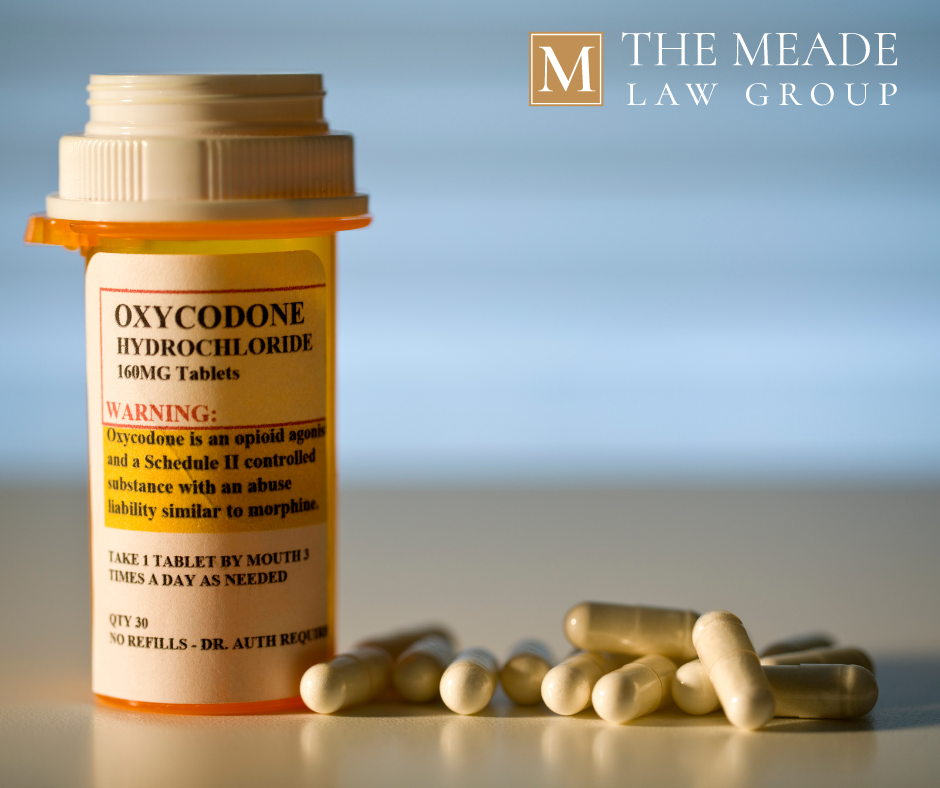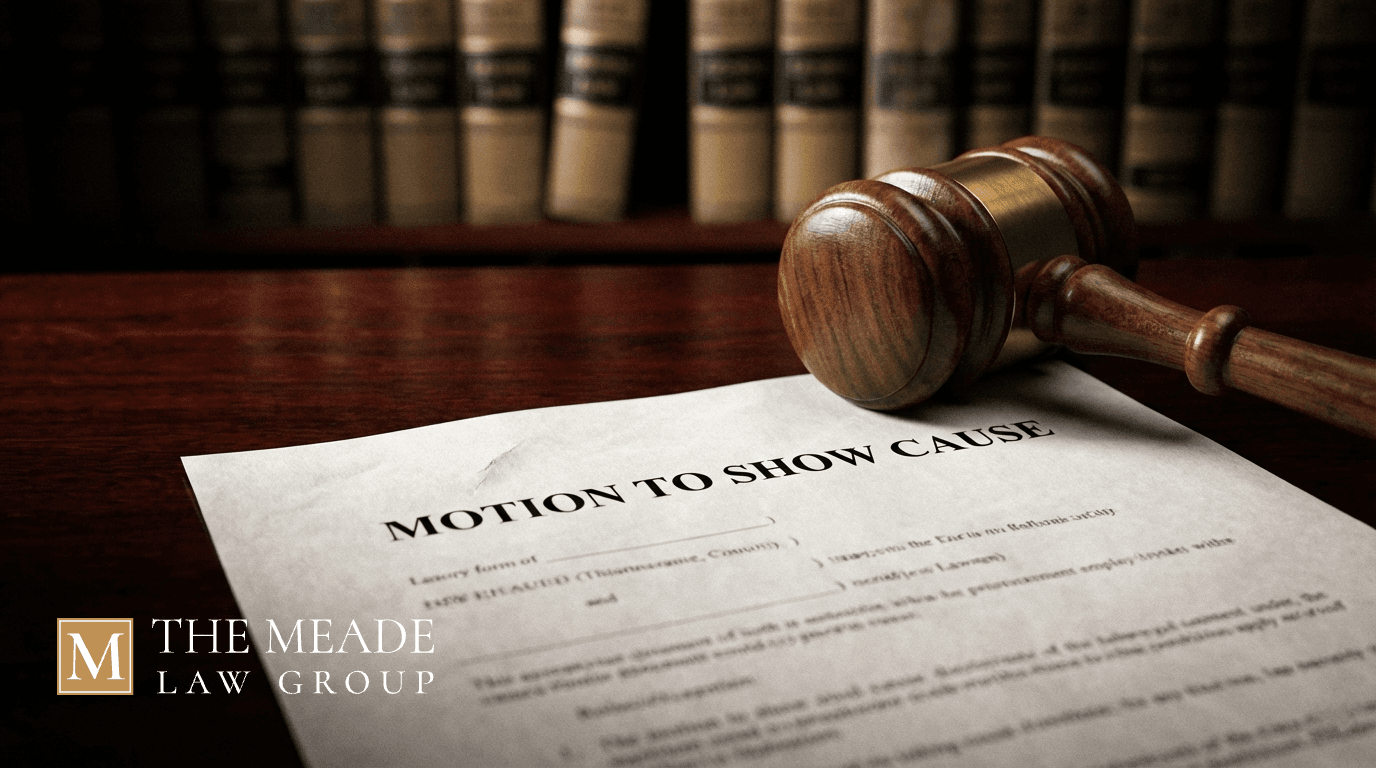Ohio enforces some of the most rigorous controlled substance statutes in the Midwest. A conviction for Ohio drug charges defense clients can result in mandatory prison terms, exorbitant fines, and permanent collateral consequences such as the loss of professional licensure or student financial aid.
Whether the allegation involves minor possession or complex trafficking conspiracies, the distinction between a dismissal and a conviction often hinges on the immediate intervention of an experienced legal team.
At Meade Law Group, we understand that the prosecution’s case is rarely as impenetrable as it appears in the initial police report. Procedural errors, Fourth Amendment violations, and laboratory inaccuracies are common.
This guide serves as an authoritative resource for fighting drug charges in Ohio, detailing the statutory nuances of possession versus trafficking, the classification of controlled substances, and the constitutional strategies utilized to dismantle the state’s case.
Controlled Substance Classifications: The Foundation of Ohio Law
To effectively navigate Ohio felony drug charges, one must first comprehend the state’s scheduling system. The Ohio Revised Code (ORC) aligns closely with federal standards, categorizing drugs into five “Schedules” based on their potential for abuse and accepted medical utility. This classification directly dictates the severity of potential penalties.
Schedule 1: Maximum Restriction
Schedule I substances are defined by a high potential for abuse and no accepted medical use in the United States. Ohio drug trafficking laws impose the harshest sanctions for these offenses.
- Substances: Heroin, LSD, Ecstasy (MDMA), Psilocybin mushrooms, and Hashish. While marijuana laws are evolving, recreational possession outside strict regulatory limits remains a legal hazard.
Schedule 2: High Risk, Restricted Use
These substances have a high potential for abuse, which may lead to severe psychological or physical dependence, yet they possess accepted medical uses under strict restrictions. Ohio criminal defense lawyers for drug charges caseloads frequently involve these substances due to the opioid crisis.
- Substances: Cocaine, Methamphetamine, Fentanyl, Oxycodone, Vicodin, and Raw Opium.
Schedules and Descending Risk
- Schedule 3: Moderate potential for dependence (e.g., Ketamine, Anabolic Steroids).
- Schedule 4: Lower potential for abuse; common in prescription fraud cases (e.g., Xanax, Valium).
- Schedule 5: Lowest potential; typically cough preparations with small amounts of codeine.
Ohio Controlled Substance Schedule Overview
Schedule | Abuse Potential | Medical Use? | Common Examples |
Schedule 1 | Highest | No | Heroin, LSD, MDMA |
Schedule 2 | High | Yes (Restricted) | Cocaine, Meth, Fentanyl |
Schedule 3 | Moderate | Yes | Ketamine, Steroids |
Schedule 4 | Low | Yes | Xanax, Ambien |
Schedule 5 | Lowest | Yes | Robitussin AC |
Distinguishing Possession from Trafficking in Ohio
A critical error many defendants make is assuming that “trafficking” requires a hand-to-hand exchange of money for drugs. In the context of Ohio drug charges defense, the legal definitions are far broader and more dangerous.
Drug Possession (ORC 2925.11)
Possession requires that the offender “knowingly obtained, possessed, or used” a controlled substance.
- Actual Possession: The substance is found on your person (e.g., in a pocket).
- Constructive Possession: The substance is found in an area under your dominion and control (e.g., a glove box or nightstand), and you were aware of its presence.
Drug Trafficking (ORC 2925.03)
Ohio drug trafficking laws criminalize not only the sale but also the preparation for sale. You can be charged with trafficking if you:
- Sell or offer to sell a controlled substance.
- Prepare for shipment, ship, transport, deliver, or prepare for distribution a controlled substance, knowing it is intended for sale.
This leads to the “Bulk Amount” rule. If police find a quantity of drugs that exceeds the statutory “bulk” threshold, or if they find paraphernalia like digital scales and baggies, they will charge you with trafficking based on the inference of intent to distribute, even without witnessing a sale.
Legal Comparison: Possession vs. Trafficking
Element | Possession (ORC 2925.11) | Trafficking (ORC 2925.03) |
Act | Having custody or control. | Selling, shipping, or preparing to distribute. |
Intent | Knowledge of presence. | Intent to sell or knowledge of resale. |
Key Evidence | Physical presence of drugs. | Scales, cash, bulk quantity, baggies. |
Penalty Level | Misdemeanor to Felony 1. | Felony 5 to Felony 1 (Mandatory Prison often). |
Penalties for Ohio Drug Offenses
The penalties for controlled substance charges that Ohio defendants face are tiered based on the drug type and weight.
Misdemeanors
Minor possession offenses, often involving small amounts of Schedule III-V drugs or marijuana, are processed as misdemeanors.
- First-Degree Misdemeanor (M1): Up to 180 days jail, $1,000 fine.
- Minor Misdemeanor (MM): $150 fine, no jail, but creates a record.
Felony Sentencing Guidelines
Most Ohio felony drug charges carry significant weight.
- Fifth-Degree Felony (F5):
- Scenario: Trace amounts of Schedule 1 and 2 (e.g., cocaine residue).
- Penalty: 6-12 months in prison, $2,500 fine. Community control is common for first offenders.
- Fourth-Degree Felony (F4):
- Scenario: Possession of 5-10g of cocaine.
- Penalty: 6-18 months in prison, $5,000 fine.
- Third-Degree Felony (F3):
- Scenario: Mid-level possession or low-level trafficking.
- Penalty: 9-36 months in prison, $10,000 fine. “Presumption of prison” applies here.
- Second-Degree Felony (F2):
- Scenario: Significant quantities (e.g., 20g+ of Fentanyl).
- Penalty: 2-8 years mandatory prison, $15,000 fine.
- First-Degree Felony (F1):
- Scenario: Major trafficking or bulk possession.
- Penalty: 3-11 years mandatory prison, $20,000 fine. Under the Reagan Tokes Act, sentences can be indefinite.
- Major Drug Offender (MDO):
- If quantities are extreme (e.g., 100g+ of cocaine), the state attaches an MDO specification, triggering an automatic maximum 11-year sentence.
Strategic Defenses to Ohio Drug Charges
When you retain an Ohio criminal defense lawyer for drug charges, the focus shifts from the facts of the arrest to the legality of the procedure. We scrutinize every action taken by law enforcement.
Fourth Amendment Violations (Search & Seizure)
The most effective tool in fighting drug charges in Ohio is the Motion to Suppress. If evidence was gathered unconstitutionally, it must be excluded.
- Unlawful Traffic Stops: Police must have a reasonable, articulable suspicion of a violation to pull you over. If the stop was pretextual and without cause, all subsequent evidence is “fruit of the poisonous tree.“
- Prolonged Detentions: Police cannot extend a routine traffic stop to wait for a K-9 unit without distinct suspicion of criminal activity.
- Warrantless Searches: While the “automobile exception” exists, it has limits. Searching a locked trunk or a passenger’s purse often requires probable cause specific to that area.
Challenging Constructive Possession
In many search and seizure drug cases, Ohio courts hear, drugs are found in shared spaces. If you are a passenger in a vehicle where drugs were found in the center console, the state must prove you knew they were there and could control them. Mere proximity is insufficient for conviction. We aggressively argue that presence does not equal possession.
Chain of Custody & Lab Analysis
The prosecution must prove the substance is what they claim it is.
- Lab Errors: Field tests are unreliable. We demand full Gas Chromatography-Mass Spectrometry (GC-MS) analysis. If the lab report is flawed or the weight is even slightly under the threshold, charges may be reduced.
- Chain of Custody: If the evidence log shows gaps in where the drugs were stored or who handled them, we argue that the evidence may have been tampered with or compromised.
Common Defense Strategies Overview
Defense Strategy | Application | Potential Outcome |
Motion to Suppress | Illegal stop or search. | Evidence excluded; Case dismissed. |
Lack of Possession | Drugs in shared car/home. | Acquittal (Not Guilty). |
Entrapment | Undercover police coerced the crime. | Acquittal. |
Miranda Violation | Interrogation without rights read. | Confession excluded. |
Lab Challenge | Incorrect weight/substance ID. | Charge reduction (Felony to Misdemeanor). |
Intervention in Lieu of Conviction (ILC)
For eligible first-time offenders, Ohio drug charge expungement eligibility begins with how the case is resolved. Ohio offers “Intervention instead of Conviction” (ILC).
- The Process: The defendant pleads guilty, but the judge stays the finding. The defendant completes treatment and probation.
- The Result: Upon successful completion, the case is dismissed, and no felony conviction is entered on the record.
- Eligibility: Generally available for F4 or F5 non-violent offenses where drug use was a contributing factor to the criminal behavior.
Critical Steps to Take After an Arrest
Your actions in the first 24 hours determine the trajectory of your Ohio drug charges defense.
- Remain Silent: Do not attempt to explain the situation. Police are trained to manipulate conversation to garner admissions. Simply state, “I am exercising my right to remain silent.”
- Refuse Searches: clearly state, “I do not consent to a search.” Even if they search anyway, your refusal is a vital legal marker for your attorney to use in court.
- Demand Counsel: Request an attorney immediately. Once invoked, police must stop questioning you.
- Preserve Data: If you have dashcam footage, text messages, or GPS data that proves your location or intent, save it immediately before it is overwritten.
Contact The Meade Law Group
If you or a loved one is facing controlled substance charges in Ohio, the window to build a defense is closing. Evidence disappears, witnesses forget, and the prosecution is already working to secure a conviction. You cannot afford a passive defense.
Meade Law Group provides aggressive, evidence-based representation. We do not judge our clients; we defend their constitutional rights. Whether arguing for the suppression of illegally obtained evidence or negotiating for Intervention instead of Conviction, our goal is to protect your freedom and your future.
Don’t wait until the indictment arrives.
Contact Meade Law Group today for a confidential case review. Let us fight to keep your record clean.
Frequently Asked Questions (FAQ)
Question (FAQ) | Legally Accurate and Keyword-Optimized Answer |
1. Can I be charged with trafficking without a sale? | Yes. Ohio drug trafficking laws criminalize preparing for distribution. Possession of a “bulk amount” or paraphernalia (scales, baggies) creates an inference of intent to sell, resulting in a felony trafficking charge. |
2. What is the “Bulk Amount” in Ohio? | The bulk amount is a statutory weight or unit threshold that significantly increases Ohio drug possession penalties. It varies by substance—e.g., 10 grams of cocaine or certain unit doses of Schedule I opiates. |
3. Can an illegal search get my case dismissed? | Yes. If evidence was obtained in violation of the Fourth Amendment, an attorney will file a Motion to Suppress. If the evidence is suppressed, the prosecution may lack the proof required to sustain the charge, leading to a dismissal. |
4. What are the key defenses to controlled substance charges in Ohio? | The most effective defenses to drug charges in Ohio are challenging illegal search and seizure, proving lack of constructive possession (no knowledge or control), and attacking the drug lab’s chain of custody or chemical findings. |
5. Am I eligible for ILC (Intervention in place of Conviction)? | Ohio drug charge expungement eligibility is tied to ILC. It is typically available for first-time, non-violent, lower-level felony offenses (F4/F5) where substance abuse was a contributing factor. ILC results in case dismissal, not a conviction. |
6. What is the risk difference between state and federal charges? | State charges utilize the F5-F1 system. Federal charges often carry significantly harsher mandatory minimum sentences and can result in much longer prison terms due to stricter federal sentencing guidelines. |
7. Does possessing a prescription without a script lead to a felony? | Possessing Schedule III, IV, or V prescription drugs (like Xanax or Vicodin) without a valid prescription can be charged as a First-Degree Misdemeanor (M1) or a felony if the amount exceeds the bulk threshold. |
8. What is the impact of a conviction on professional licenses? | A felony conviction, especially for Ohio felony drug charges, can permanently revoke or suspend professional licenses (medical, nursing, law, teaching), requiring a successful expungement/sealing process to potentially restore. |


